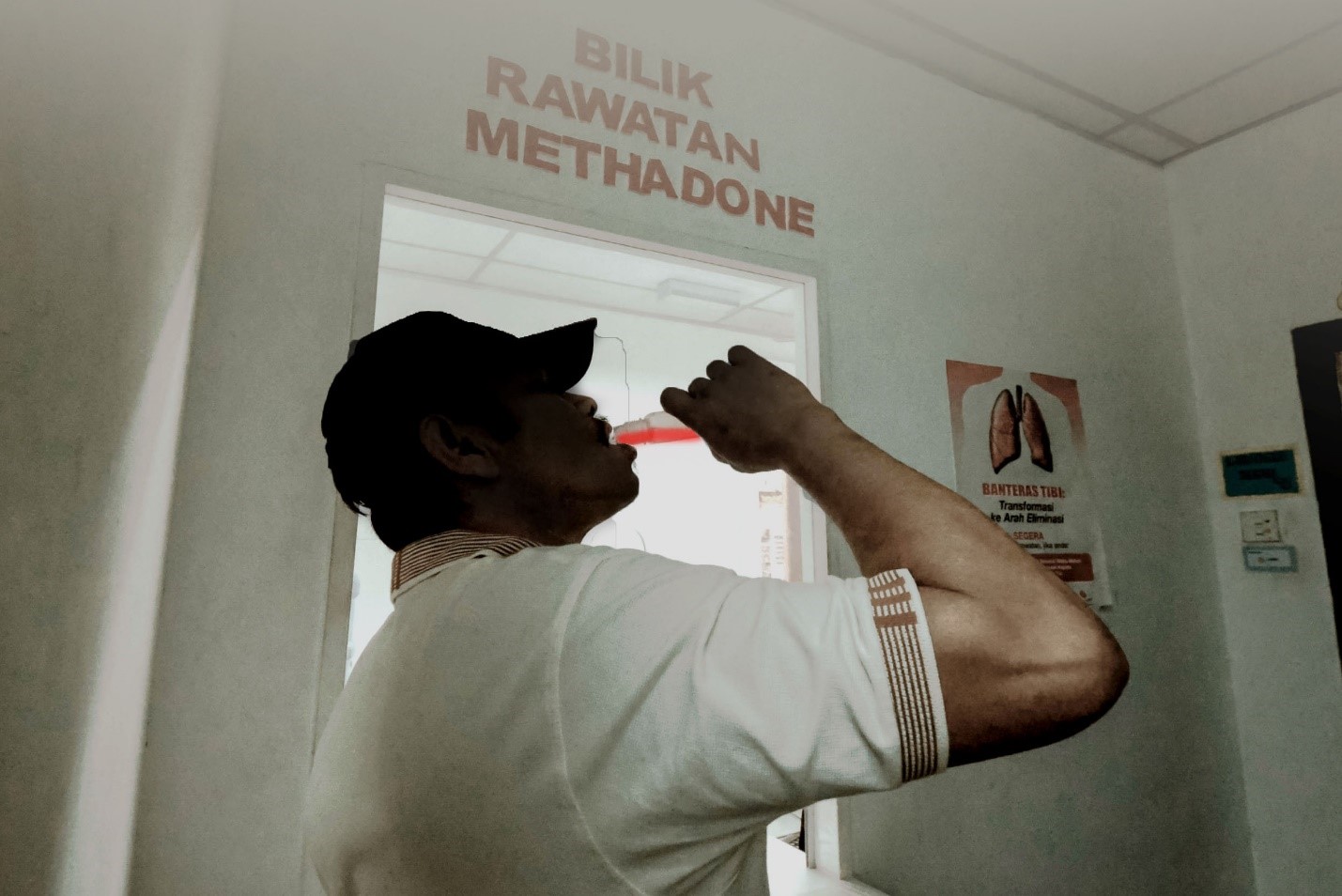Malaysia's HIV harm reduction programs most cost-effective in future
The Needle and Syringe Exchange Program, conducted by local non-governmental organizations and the Ministry of Health, offers patients clean needles and syringes.

- Country:
- Malaysia
Working in public health brings me closer to the stories of brave patients and dedicated medical staff. Very often we also conduct quantitative and qualitative assessments of case studies. In recent years, our work in Malaysia engages a public health concern that has gripped the world – HIV. Our findings have given us hope of winning the fight against the disease.
In our study, we found that HIV harm reduction programs are the most cost-effective and likely to produce the most net cost-savings in the future. A long-term benefit projection from 2006 to 2050 indicates savings of approximately RM910 million in health care costs and an average return of RM1.13 for every ringgit invested in harm reduction programs.
Continued support for these programs will save money and lives. Malaysia’s HIV harm reduction programs focus on people who inject drugs (PWID), one of the key populations with high HIV prevalence. In 2006, the government launched two harm reduction intervention programs. The Needle and Syringe Exchange Program, conducted by local non-governmental organizations and the Ministry of Health, offers patients clean needles and syringes.
The Methadone Maintenance Therapy provides heroin addicts enrollment in rehabilitation therapy where heroin or other opiates are replaced with synthetic methadone at public hospitals and clinics, private practitioners, Malaysia’s National Anti-Drug Agency’s clinics and service centers, as well as in prisons. We found that both the programs have proved to not only be cost-effective but also cost-saving. It is estimated that the implementation of the two programs resulted in a total of RM210 million saved in direct health care costs.
This produces a return of RM1.07 for every ringgit spent over the next ten years. As for effectiveness, these programs have significantly contributed to the reduction of new HIV cases among PWID from over 4,000 per year in 2005 to only 115 in 2017.
The HIV prevalence among PWID has also reduced from 22% in 2009 to 13.4% in 2017. With the implementation of the two programs, the government has made clear systematic efforts and spent significant resources to control HIV transmission among PWID. Funding for harm reduction activities is almost exclusively from the public purse and supplemented by funding from the Global Fund for AIDS, TB, and Malaria and the International HIV/AIDS Alliance.
In a related study on PWID called ‘Making Drug Treatment Work: Opportunities and Challenges Towards an Evidence and Rights-Based Approach’, we found that opioid-dependent participants treated involuntary drug treatment centers experienced a significant decrease in relapse to opioids and illicit drugs, compared to individuals released from traditional compulsory drug treatment centers.
These provide solid evidence for the scaling up of the centers for treating drug dependence, as well as making evidence-based opiate-substitution treatments more accessible and voluntarily available. Evidence-based initiatives like the ones taken in Malaysia could serve as an important learning point for countries within the region that are faced with similar HIV epidemics.
The findings from these two studies were recently disseminated at the ASEAN Regional Advocacy Workshop on HIV Prevention in PWID held in Malaysia on May 13-15, 2018, with participation from policymakers and experts from ASEAN countries.
The event was hosted by the Ministry of Health, with the India HIV/AIDS Alliance, the World Bank and UNAIDS as co-hosts. This not only confirms that Malaysia is doing the right things but also inspires policymakers in other countries to apply evidence-based and cost-effective approaches. It is an important step towards providing effective help to PWID around the world.
The report “Return on Investment and Cost-Effectiveness of Harm Reduction Programs in Malaysia” was completed in collaboration with the University of Malaya, Kirby Institute and the World Bank with support from the Malaysian Ministry of Health.
- FIRST PUBLISHED IN:
- World Bank
ALSO READ
Mexico sounds alarm over 'zombie drug' sedative in opioids
Health News Roundup: Nigeria becomes first country to roll out new meningitis vaccine, WHO says; Mexico sounds alarm over 'zombie drug' sedative in opioids and more
Opioids more potent than fentanyl have been detected in Australia. So what are nitazenes?










